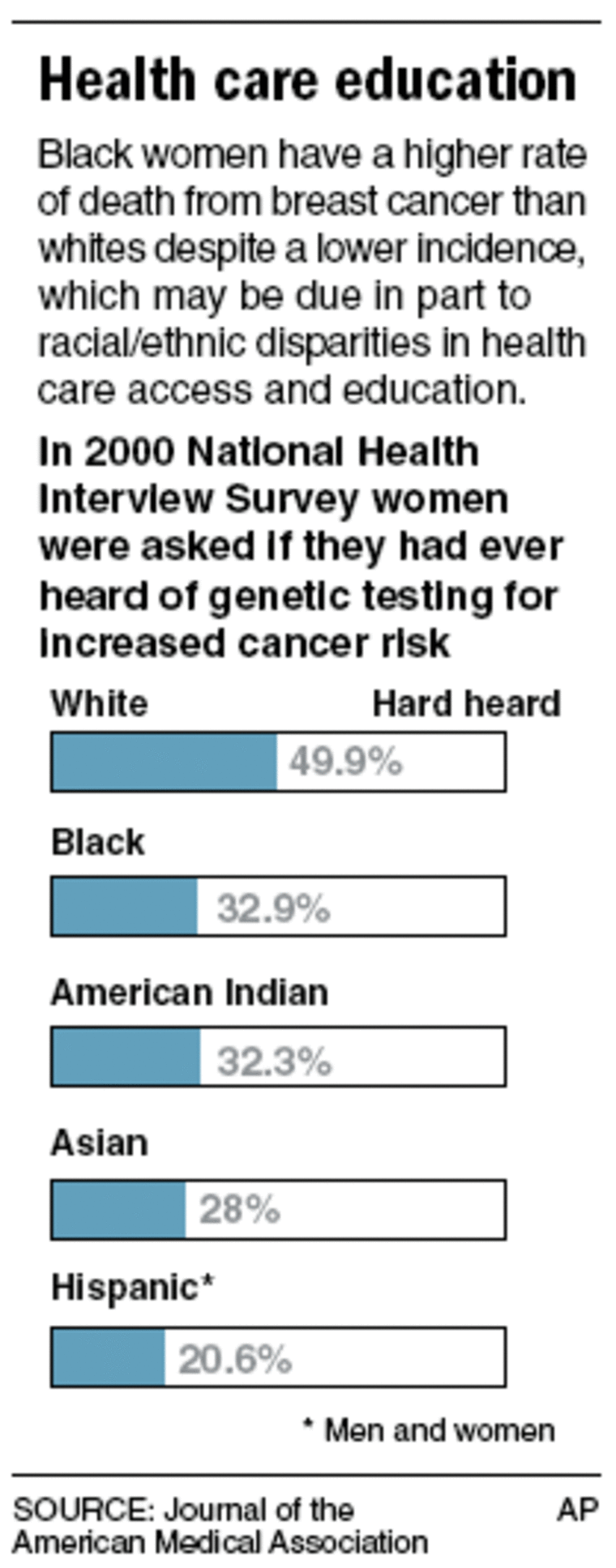Black women with a family history of breast cancer are much less likely than whites to get genetic counseling, in part because of the mistaken notion that the genetic form of the illness is a white woman’s disease, researchers say.
While breast cancer generally is more common among white women, some data suggest both races have similar rates of genetic flaws known as BRCA mutations that greatly increase the risk of developing the disease. Also, breast-cancer mortality rates are higher in black women.
In a study published in Wednesday’s Journal of the American Medical Association, researchers questioned 408 women with a family history of breast or ovarian cancer. Only 16 of the 71 blacks studied — about 22 percent — got genetic counseling, compared with 184 of the 310 white women, or about 60 percent.
Counseling to evaluate risks is generally a prerequisite for genetic testing.
Racial disparities are common when it comes to preventive medical care, but “the size of the difference was really surprising,” Dr. Katrina Armstrong, a cancer researcher at the University of Pennsylvania who led the study.
Expensive, controversial
Armstrong said the gap might reflect fears of discrimination and a general distrust of the medical establishment, while others said some blacks might be reluctant to talk about cancer.

Dr. Funmi Olopade, a University of Chicago breast cancer researcher who co-wrote an accompanying editorial, said black women tend to underestimate their breast cancer risk and lack awareness about BRCA flaws.
The flaws cause 5 percent to 10 percent of the more than 1 million cases of breast cancer diagnosed worldwide and 200,000 cases nationwide each year.
Because BRCA mutations are more common in Jewish women of Eastern European heritage than in the general population, genetic breast cancer is sometimes mistakenly thought of as a white woman’s disease.
Genetic testing is controversial, in part because of the cost — about $3,000 — and because the mutations do not guarantee breast cancer will develop. Also, some of the preventive treatment options offered to women are extreme, and include having the breasts removed before any trace of cancer appears.
Lillouise Rogers, a black breast cancer survivor from Chicago with a strong family history of the disease, said she has no interest in getting tested. She fears insurance companies will deny coverage if her family is found to have a BRCA mutation.
“I don’t opt to do that, ever,” said Rogers, 60, who works for the national Y-ME breast cancer advocacy group.